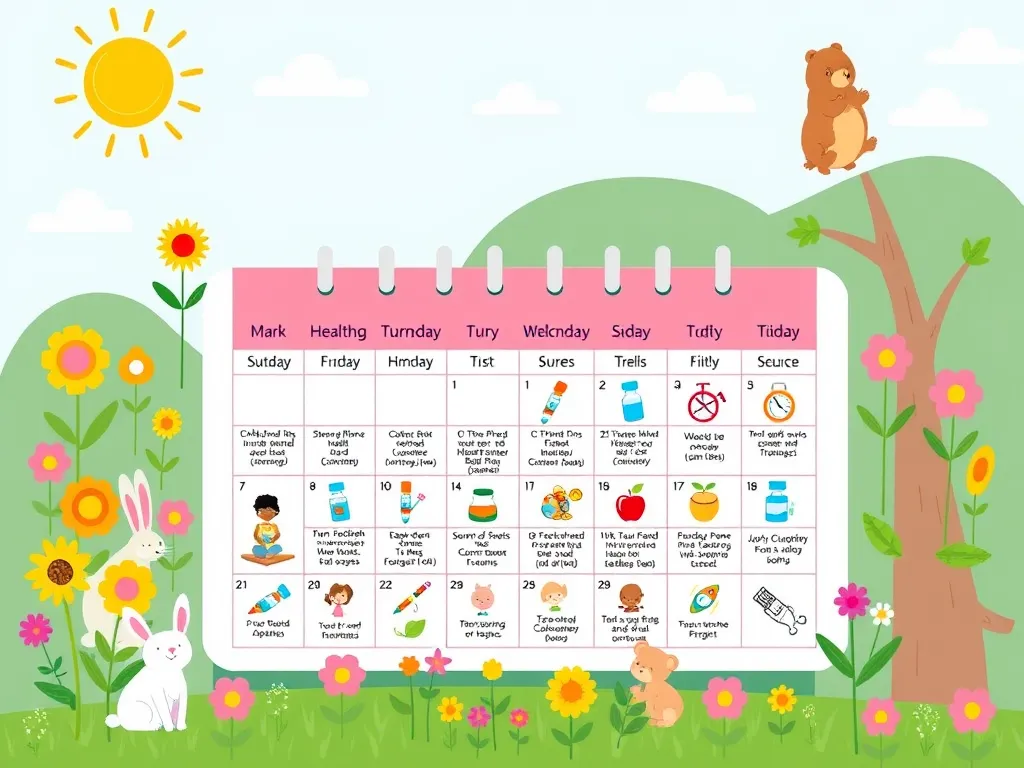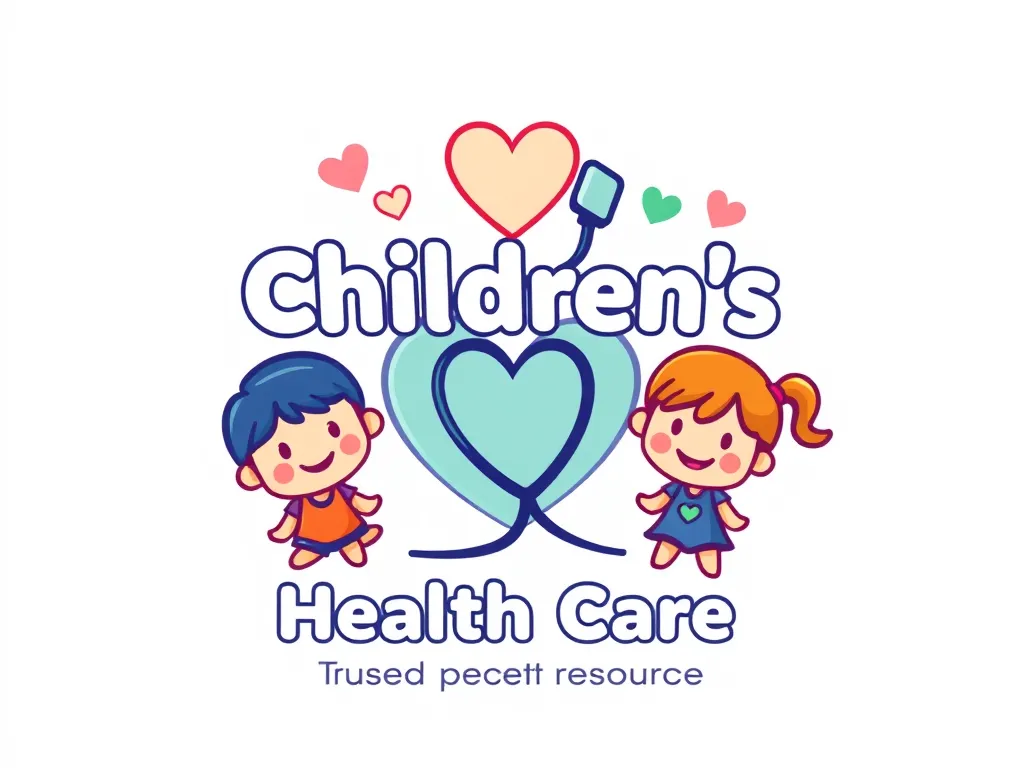Understanding the Importance of the Immunization Schedule for Children

Immunization Schedule for Children: Ensuring a Healthier Future
An Immunization Schedule for Children is a crucial guideline that outlines the timing and types of vaccinations necessary to protect children against various preventable diseases. These schedules are developed by health authorities and are based on extensive research that underscores the importance of immunization in maintaining public health. Following the Immunization Schedule for Children helps ensure that children are vaccinated at the appropriate ages and intervals, maximizing their protection against infectious diseases.
Understanding the importance of adhering to the Immunization Schedule can significantly protect public health and prevent outbreaks.
The Immunization Schedule for Children is not only essential for individual protection but also plays a vital role in community health. By adhering to this schedule, parents contribute to herd immunity, which helps shield those who are unable to be vaccinated due to medical reasons. Vaccination rates are crucial for preventing outbreaks of diseases such as measles, mumps, and polio. The schedule typically includes vaccines like DTaP, IPV, MMR, and hepatitis B that are administered during well-child visits throughout infancy and early childhood.
Healthcare providers play an instrumental role in guiding parents through the Immunization Schedule for Children. Regular check-ups allow professionals to assess a child's vaccination status, provide necessary immunizations, and address any concerns parents may have. Parents are encouraged to keep track of their child's vaccination records, ensuring that all doses are administered on time according to the recommended schedule. As children grow, booster shots become necessary to maintain immunity against certain diseases, emphasizing the need for ongoing vigilance.
In addition to the health benefits, understanding the Immunization Schedule for Children can help foster communication between parents and healthcare providers. It empowers parents to make informed health decisions for their children and encourages proactive participation in their healthcare journey. This is especially important given that vaccination hesitancy continues to be a challenge in various communities. Education about the safety and efficacy of vaccines is key to improving vaccination rates and protecting public health.
Ultimately, the Immunization Schedule for Children is a roadmap for parental responsibility and public health empowerment. By keeping children on track with their vaccinations, we safeguard not only their health but also the wellbeing of our communities. It is a simple yet profound step that every parent should prioritize, ensuring a healthier future for generations to come.
Health Benefits of Immunization
Immunization provides significant health benefits, starting with the prevention of communicable diseases. Vaccines stimulate the immune system to recognize and fight specific pathogens, reducing the incidence of diseases such as measles, chickenpox, and whooping cough. By vaccinating children per the Immunization Schedule, we create a barrier against these illnesses, which can lead to severe complications or death in vulnerable young populations.
Moreover, vaccines contribute to long-term health outcomes. By preventing diseases in childhood, vaccination reduces the risk of associated health issues later in life. For instance, individuals vaccinated against hepatitis B are less likely to develop chronic liver disease or liver cancer as adults. The Immunization Schedule for Children, therefore, lays a foundation for healthy adulthood.
Additionally, Immunization fosters community immunity, also known as herd immunity. When a significant portion of the population is vaccinated, it lowers the overall amount of disease circulation, providing protection even to those who are not vaccinated. This communal protection is essential for safeguarding environments like schools and daycare centers, where children congregate and share pathogens. Following the Immunization Schedule for Children is vital for creating a safer community environment.
Recommended Immunization Schedule
The recommended Immunization Schedule for Children varies by age and is updated regularly based on new research and epidemiology. Infants typically receive their first vaccines within the first year of life, including DTaP, IPV, Hib, and hepatitis B, followed by a series of vaccinations throughout early childhood. It's essential for parents to be aware of age-specific vaccines to ensure their child is protected when they are most vulnerable to infectious diseases.
Catch-up vaccination guidelines are also an integral part of the Immunization Schedule for Children. These guidelines ensure that unvaccinated or under-vaccinated children can receive their vaccines in a timely manner, regardless of their age. Catch-up schedules are especially important for families who may have missed earlier vaccinations due to various reasons such as healthcare access or misinformation.
Vaccination timing and doses are strictly outlined in the Immunization Schedule for Children to optimize vaccine effectiveness. Vaccines are often administered in multiple doses, with specific intervals recommended between doses to build robust immunity. Adhering to these timing requirements is crucial for ensuring that children develop adequate protection against diseases, and it helps maintain herd immunity levels throughout the population.
Vaccination Myths and Facts
To further understand the Immunization Schedule for Children, it's essential to address common vaccination myths and facts. Many misconceptions circulate about vaccines, leading to hesitancy among parents. One myth is that vaccines can overwhelm a child's immune system. In reality, vaccines are designed to work with the immune system, and the body is constantly exposed to numerous pathogens everyday in the environment; vaccines help prepare the body to fight off specific diseases effectively.
Understanding vaccine safety is crucial for all parents. Extensive studies and continuous monitoring ensure that vaccines go through rigorous testing before approval. Serious side effects are rare, and the benefits of vaccination far outweigh the risks. By staying informed about vaccine safety, parents can confidently follow the Immunization Schedule for Children and keep their children healthy.
The evidence-based benefits of vaccination cannot be overstated. Vaccines have successfully reduced the incidence of numerous diseases and saved millions of lives worldwide. Immunization is recognized as one of the most efficient and cost-effective public health interventions. Educating parents about these facts can help dispel myths and encourage adherence to the recommended Immunization Schedule for Children.
Role of Parents in Immunization
Parents play a vital role in the successful implementation of the Immunization Schedule for Children. Educating families about vaccines is essential in fostering understanding and acceptance. This education can take place through discussions with healthcare providers, community health sessions, or through credible online resources. By understanding the benefits of vaccination, parents can effectively advocate for their children’s health.
Tracking vaccination records is another critical responsibility for parents. Maintaining an accurate record of a child's vaccinations helps avoid missed doses and ensures that the Immunization Schedule for Children is followed meticulously. Utilizing digital solutions or mobile apps can streamline this process and keep parents informed about upcoming appointments and needed vaccinations.
Furthermore, parents should maintain open lines of communication with healthcare providers. Discussing any concerns about vaccines or the Immunization Schedule for Children with a trusted healthcare professional can help reinforce confidence in the vaccination process. This collaboration between parents and healthcare providers is essential for fostering a proactive approach to children’s health.
Global Trends in Childhood Immunization
The landscape of childhood immunization is constantly evolving on a global scale. Vaccination rates vary widely across countries due to factors like access to healthcare, education, and socio-economic status. While some regions have achieved high immunization coverage, others still face significant challenges that put children's health at risk. Global health organizations work diligently to address these disparities and promote equitable access to vaccines.
Public health policies have a significant impact on immunization trends. Countries with robust vaccination mandates and public awareness campaigns generally report higher vaccination rates. Collaborative efforts to improve vaccine accessibility and educate the population about the importance of immunization are essential in combating vaccine-preventable diseases on a global scale.
Challenges in vaccine distribution continue to hinder effective immunization efforts in many regions. Factors such as logistical issues, vaccine hesitancy, and misinformation pose significant barriers to immunization success. Overcoming these challenges requires comprehensive strategies, including community engagement, targeted education, and improved healthcare infrastructure to ensure that every child can benefit from the Immunization Schedule for Children.
